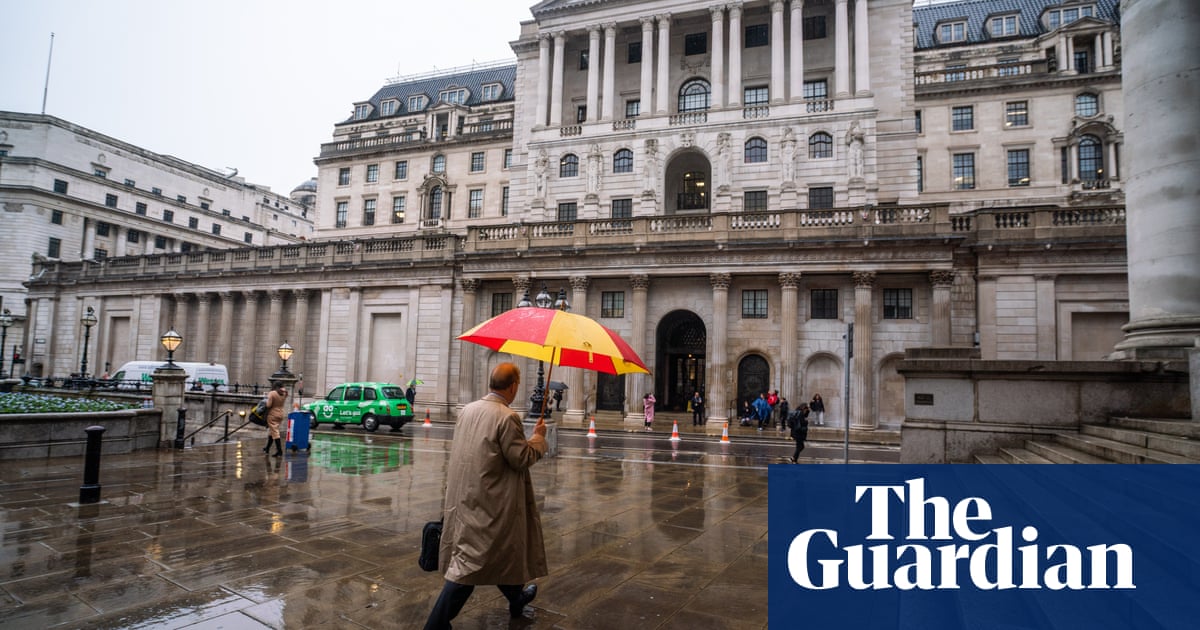
A senior Bank of England policymaker has said Britain’s central bank could raise rates again next month to combat the risk of high inflation persisting into 2023.
Catherine Mann, a former Citigroup economist who joined the BoE’s nine-strong monetary policy committee (MPC) last year, said on Thursday that soaring prices of energy and food will persist next year, even if consumer demand weakens.
Some economists have forecast that the UK economy will shrink in the second quarter and possibly fall into recession following a collapse in consumer and business confidence in the wake of Russia’s invasion of Ukraine that is likely to worsen shortages of goods and push inflation to fresh highs.
However, Mann said it was important for the central bank to calm inflation expectations, which were likely to drive demands for higher wages, pushing inflation even higher.
“The domestic inflation ratchet … has been my central concern,” she said in a speech.
In February when the MPC voted for a 0.25-point increase in the base rate she voted with a minority for a sharper 0.5-point rise. Last month she voted with almost all other members for a 0.25-point rise, taking the base rate to 0.75%.
She said: “Monetary policy needs to keep inflation expectations anchored; by doing so now, less tightening will be required later, when demand may still be weak.”
The BoE will meet on 5 May to decide on the path of interest rates at a time when most households have begun to absorb a rise in national insurance contributions and a freeze on income tax thresholds that will push hundreds of thousands of taxpayers into higher tax brackets.
Inflation hit a 30-year high of 7% in March, and the BoE last month warned that the bigger-than-expected pickup in prices would squeeze growth later this year.
However, Mann said it was not obvious to her that this fall in consumer demand would come soon enough to prompt businesses to rein in forthcoming price rises.
“Tracking these price expectations and forecast revisions is of paramount importance since inflation ultimately is due to firms systematically able to raise their prices,” she said.
Moreover, staged energy price increases designed to smooth the recent shock increase in wholesale costs would extend the period of high inflation. “The underlying inflation ratchet associated with lagged CPI [consumer price index] in firms’ pricing expectations will imply more persistence in keeping inflationary pressures above target,” she said.
Financial markets expect Mann and the rest of the MPC to increase the base rate to 2.25% by the end of the year. However, many economists expect the biggest collapse in real disposable household incomes since records began in 1948 to force a U-turn.
Samuel Tombs, chief UK economist at the consultancy Pantheon Macroeconomics, said: “We doubt the MPC will be so cavalier as to hike bank rate to 2.25%.” He said a 0.25-point rise in May and another in August would be the most UK borrowers could expect as the economic situation worsened.
Danny Blanchflower, a former MPC member and professor of economics at the US Ivy League university Dartmouth College, said the BoE would be blamed for depressing household incomes at a time of rising poverty.
Mann’s concern that inflation would persist, driven by an explosion in wage demands, was based on “no evidence”, he added. “There is nothing in the survey evidence to show that households or financial markets believe inflation is going to last and no evidence that workers have the clout to increase wages by more than inflation.
“All the evidence points to there being a recession around the corner driven by higher taxes, rising energy and food costs and an evidence-free increase in interest rates.”












